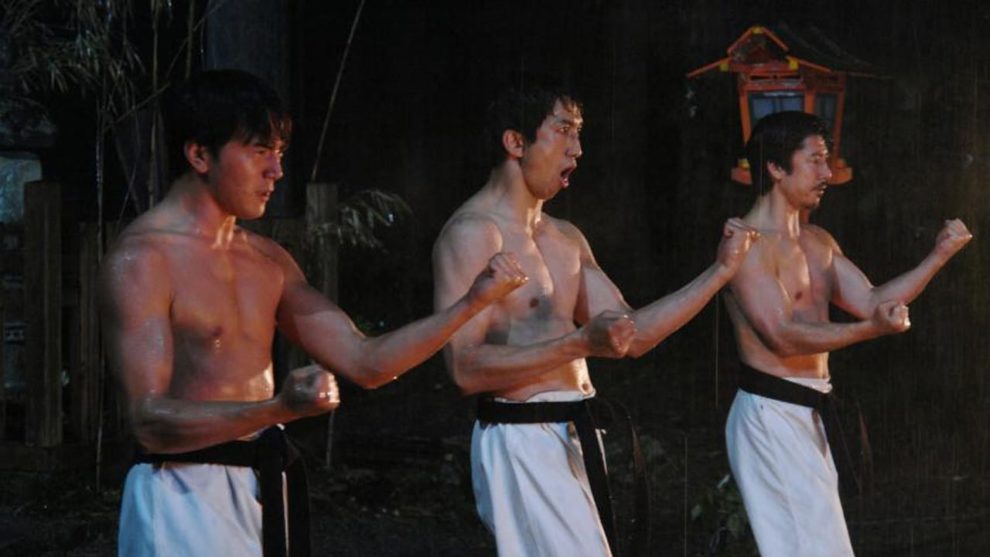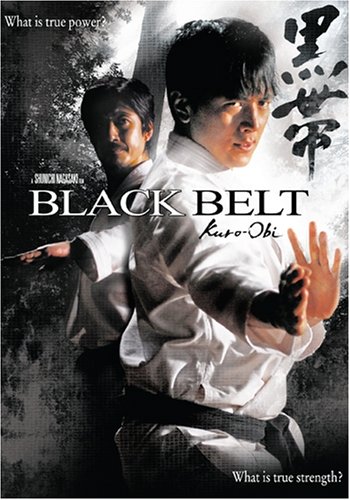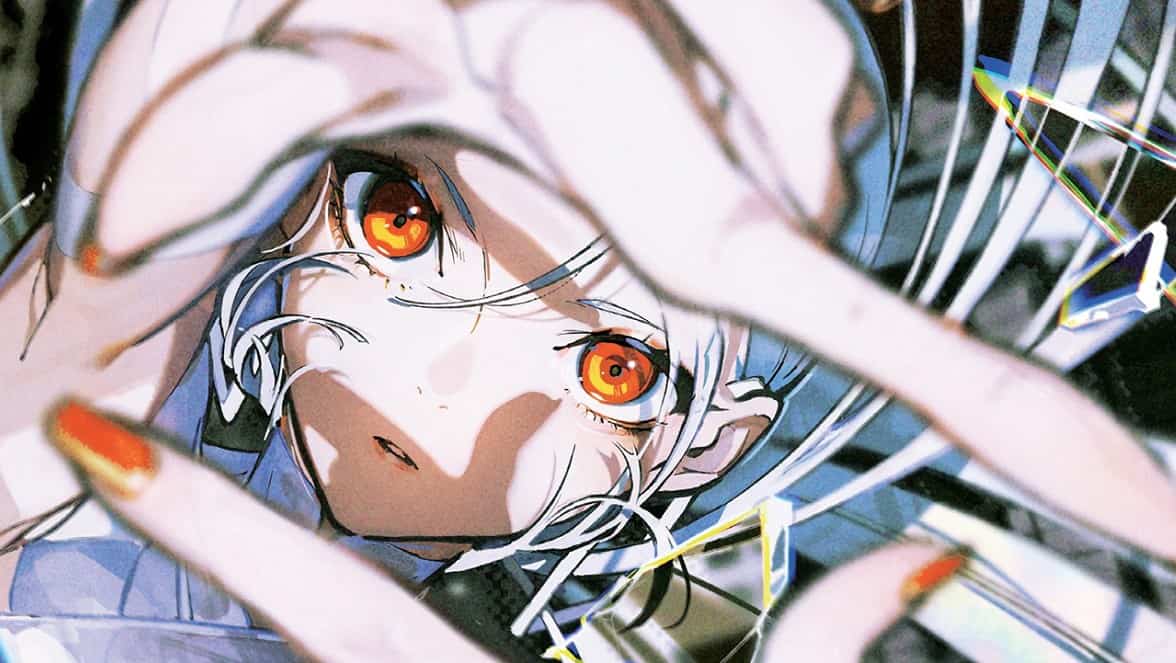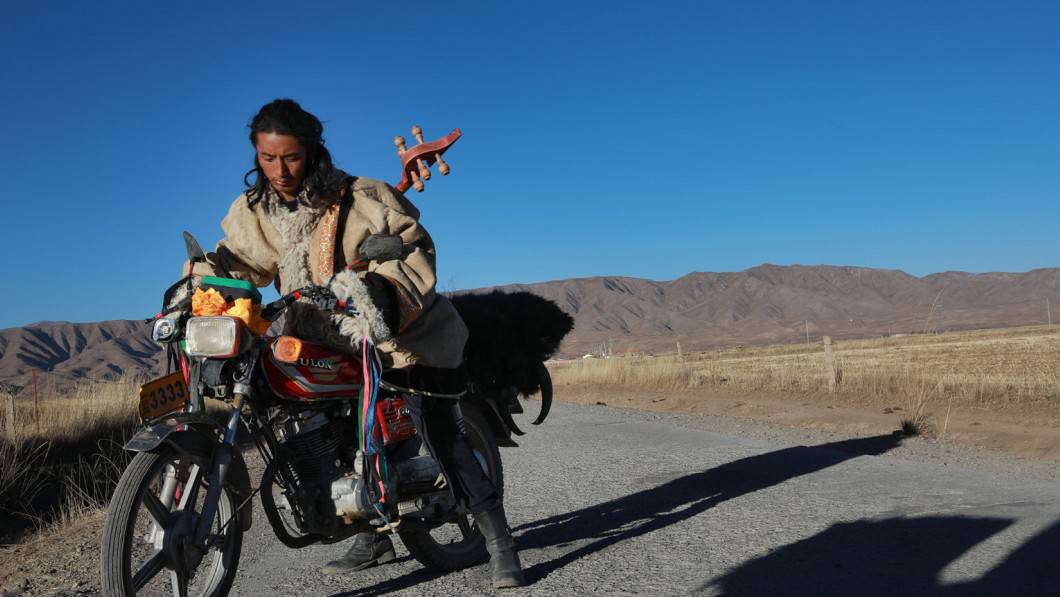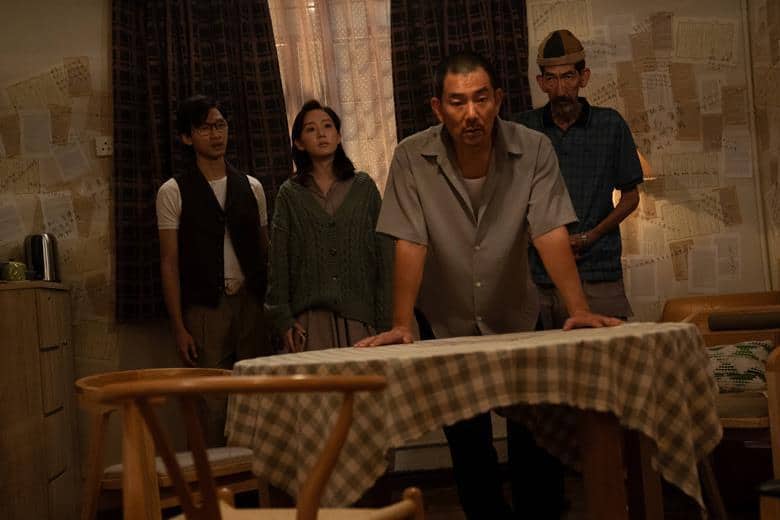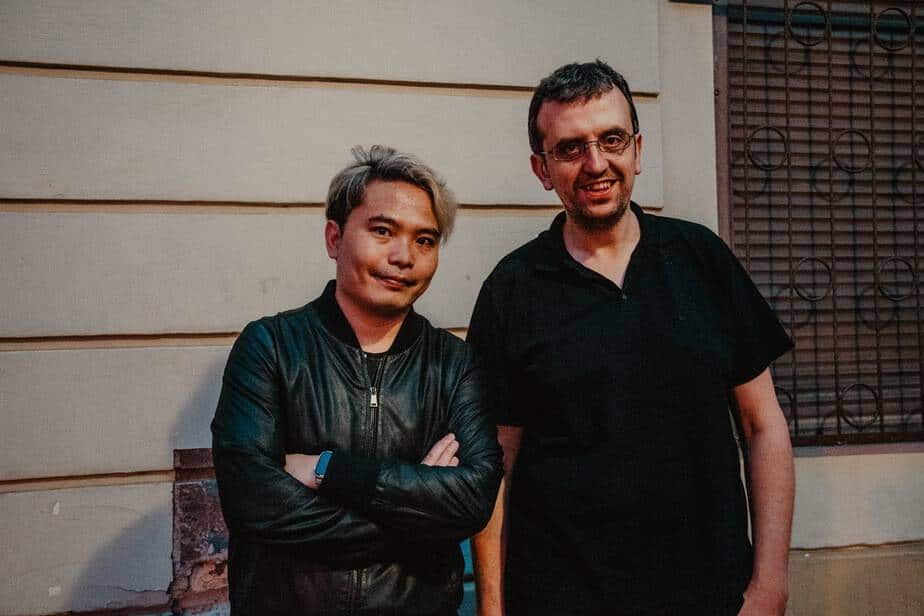“Black Belt” is a rather unusual film for the martial arts genre. Showcasing karate, instead of succumbing to the usual exaggerations associated with the genre, instead features genuine martial artists in the protagonists' roles (Tatsuya Naka 7th Dan JKA Shotokan karate, Akihito Yagi 7th Dan Meibukan Gōjū-ryū Karate and Yuji Suzuki, 1st Dan Kyokushin karate) and its focus is mostly on realism rather than impression.
Buy This Title
on Amazon
The events take place in 1932 in Japanese-occupied Manchuria, in which the corrupt leaders of the Japanese army are trying to take over all the Karate dojos /training halls for their own benefit. Master Eiken Shibahara from one of these dojo located on the southernmost Japanese island of Kyushu, dies before passing on the Kuroobi/ black belt to his successor, just after the military police tries, and fails to take over their school, as his three students, Taikan, Giryu and Choei successfully beat their forces. Unfortunately, when the leader of the procession is beaten, he is forced to commit suicide, in a series of events that end up with the three students being split, as his children come to seek revenge from Giryu, whom they consider responsible. The young man, who followed the genuine teachings of his master, that karate is for self-defence and not for attacking, finds himself injured in the house of a poor agricultural family, who take care of him. Depressed about the previous events, he has started to question his beliefs and his whole dedication to karate. In the meantime, Taikan, whose philosophy is to hit first at all times, ends up employed by the local leader of the military forces, beating up others masters and taking up their dojos, while indulging in alcohol and women, which, however, do not seem to dull his abilities the least. Choei, although disgusted by his colleagues' ways, still follows him. Eventually, and inevitably, the connections of the aforementioned leader with the local yakuza bring him against Giryu, and the showdown between the two former classmates is unavoidable.
Probably the most impressive aspect of the movie is the realism of the fights, most of which end in a single punch or kick, although some of the deaths that occur seem somewhat excessive. The difference of the two main fighters, both of which are equally skilled but have completely different philosophies, also works quite well here, with the final fight in the mud being particularly impressive. The problem however, is that Taikan, despite his violent ways, emerges as the most appealing one, both because he succumbs to “sin” after some point, but also because he appears decisive and competent, while Giryu is timid and always thinking instead of acting, with the consequences of his mentality occasionally being much worse that what his colleague's violence causes. At the same time, the fact that it becomes obvious that the ‘virtuous' will defeat the ‘sinner' in conjunction with the aforementioned aspect, also faults the overall sense the narrative emits, additionally because the ending seems unlikely and even sanctimonious on a number of levels.
Essentially, where the movie truly thrives is the moments when Tatsuya Naka as Taikan appears on screen, with his various fights but also his overall demeanour being quite appealing, while also showcasing his abilities in karate. Particularly the fight with another master, whose technique is similar, is a wonder to look at, also due to its relentless brutality. Granted, the last one is more impressive, but that occurs more in cinematic/dramatic terms, rather than the actual fighting. Nevertheless, Fuyuhiko Nishi's choreography and Akihiro Noguchi's action coordination are top-notch, something that becomes evident in every fight.
Masato Kaneko's cinematography captures the era and the rural setting in the most excellent fashion, with a quality and a focus on realism that is quite rare for the genre. HIrohide Abe's editing implements a pace that is relatively fast but not frantic, occasionally allowing a tempo that would fit family dramas more, something, however, that does help in the overall outcome.
“Black Belt” is not exactly the film that fans of martial arts movies will adore, but at the same time, is one that fans of more socially oriented cinema will probably find much more interesting.


